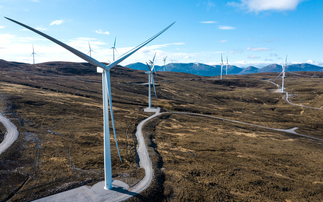Yvo De Boer welcomes divestment push and restrictions on coal lending, but argues developing nations need help to curb dirty coal emissions
However, he admitted this approach could falter if some banks continue to fund new coal projects. For example, it remains to be seen if the New Development Bank, set up by the BRICS group of emerging economies - Brazil, Russia, India, China and South Africa - will adopt a similar stance to the World Bank or decide to back new coal plants.
"There is a very strong and healthy campaign on fossil fuel divestment including divestment from coal," De Boer said. "That's an interesting and important moral stance, but the question is: Is the financial market so constrained that people wanting to build coal installations will be unable to find financing somewhere else?"
The question of coal is just one of the many problems faced when measuring international progress towards the internationally agreed climate finance goal of mobilising $100bn of investment a year from 2020. For example, how do you analyse if climate finance pledges are genuinely new? Or if they are actually being delivered?
"The fact there is more investment in renewables... is great," said De Boer. "But the political question is how much money is being mobilised to help developing countries in the context of their specific climate action plans."
Even the OECD has admitted that much more work is required on its own methodology if it is to accurately measure progress towards the $100bn goal. De Boer said this work should be included in any Paris Agreement that countries are expected to sign at the end of this year.
"A critical part of the Paris Agreement will need to be a much more robust mechanism to track the contributions of industrialised countries to the national plans - the INDCs - to developing nations," he said.
With the world now weeks away from the start of the COP21 talks in Paris, De Boer said he is optimistic about the level of progress when compared to the same point in the process in 2009 ahead of the Copenhagen talks. He argued Paris' lack of emphasis on delivering an internationally legally binding text made it much less "threatening" to governments than the Copenhagen Summit and praised the various bilateral talks that have taken place since Copenhagen to help build stronger foundations for action on climate change, particularly between the world's biggest superpowers the US and China.
However, he warned that negotiators have taken "a huge" amount of time to draw up the negotiation text. "We were in a very similar situation in Copenhagen where it was only in the final meeting before Copenhagen... that countries got serious about the negotiating text," he said. "And we're in a pretty similar situation now."
This article is part of BusinessGreen's Road to Paris hub, hosted in association with PwC









